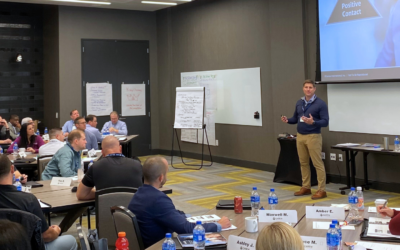Odds are we’re all in a tough place right now. We’ve heard it before, and we’re going to continue to hear it because it’s true. We’re all being affected by COVID-19 in a way we’ve never been affected by something before. We’re stressed, confused, and overwhelmed- just to name a few of the feelings that have taken over our lives in the last couple of months.
While we’re all in similar situations, and are likely experiencing many of the same feelings, it’s important to recognize that we’re not all going through the exact same thing. I saw a metaphor on social media earlier this week that summarizes this phenomenon nicely: “We’re all in the same storm, but we’re not all in the same boat.”
For example, when it comes to our professional lives, those who work in non-essential businesses may be out of a job, while those who work in essential businesses may be busier than ever. In this situation, we can say that COVID-19 has made the individuals in both scenarios stressed about work, but the person who is out of a job is stressed for an entirely different reason than the person who can barely take a break. This same dynamic can even be seen interdepartmentally within the same organization. Sales teams may be having a hard time finding customers to talk with them due to business uncertainty, while customer service teams at the same organization may be bombarded with incoming calls from customers wanting clarification because of business uncertainty.
The same goes for our personal lives. At home, it’s probably a common feeling to be overwhelmed. But the single parent who is trying to balance a full-time job from home with her child’s online schooling is overwhelmed for an entirely different reason than the son who has contracted the virus and can’t take care of his elderly father like he used to.
We’re all in the midst of the same pandemic, but we’re experiencing it differently because our perceptions of what’s happening, and our needs, are different. “We’re all in the same storm, but we’re not in the same boat.”
This story translates nicely to a concept Carew calls “The Odds Are Factor.” Simply put, the “Odds Are” factor states that, at any given time, a sales professional is inwardly focused on their own needs/wants rather than being outwardly focused on their customer’s needs/wants. The only way to get out of your own head, and truly understand something from another’s point of view is to get out of your own “Odds Are.”
As sales leaders, we need to remember that the “Odds Are” factor is in play on our sales teams right now. Your sales team members aren’t experiencing the COVID-19 situation in the same way you are. They’re all having different experiences with it. How are you supposed to do your job as a sales leader and lead your sales team through this pandemic if you are experiencing it in an entirely different way than them and they are experiencing it in an entirely different way than each other?
It’s crucial to separate yourself from your own experiences and truly understand what’s going on in each of your sales professionals’ worlds. As individuals, how is the pandemic affecting them, both personally and professionally? Make sure you are taking the time to have conversations with your employees one-on-one to understand what they are going through from their own point of view. Once you better understand their realities from their perspectives, not only will you strengthen the relationships you have with them, but you’ll be better equipped to help your sales team emerge from the pandemic in the best way possible!





